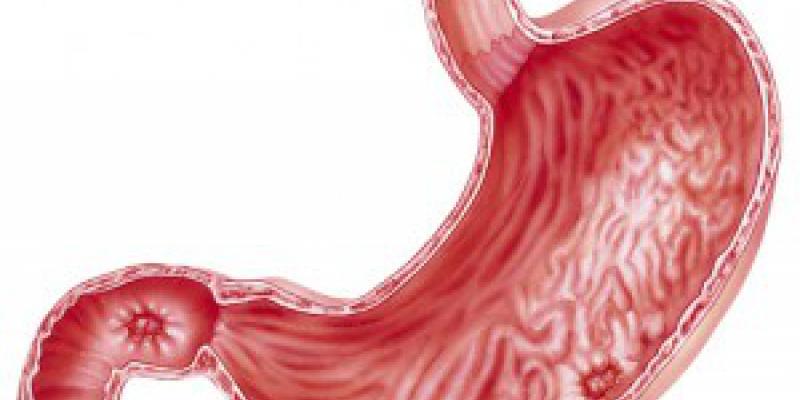Gastric cancer or stomach cancer is a malignant growth found in the stomach. The Canadian Cancer Society predicts that 4100 Canadians will be diagnosed this year with gastric cancer and 2000 will die. November 30th marked the seventh Stomach Cancer Awareness Day. In recognition, city halls and landmarks in major cities like Toronto, Edmonton and Halifax will be lit periwinkle blue, including St. Thomas at JUMBO Monument!
The stomach is a sac-like organ whose purpose is to store and process food. It uses acid, enzymes and mechanical churning to break down food before releasing it to the small intestine where we absorb its nutrients. Sometimes the cells of the stomach can change and not behave normally. Sometimes these changes result in non cancerous tumours such as lipomas (fatty tumours) or polyps. Other times, these changes can result in malignant tumours which spread to other parts of the body. The most common type of malignant gastric carcinoma is called an adenocarcinoma. This tumour starts in the gland cells (the cells that produce stomach acid, mucous and digestive enzymes). Adenocarcinomas make up 90-95% of gastric cancers. Other rarer forms include gastrointestinal stromal tumours (GIST), lymphomas, adenosquamous carcinoma, and neuroendocrine tumours.
In the early stages, there can be none to few symptoms. As the tumour grows, it can press on other structures in the abdomen leading to abdominal symptoms such as nausea, indigestion, feeling full, pain and discomfort. It can also lead to general symptoms such as anemia, fatigue and shortness of breath. Lumps in the abdomen, armpit, pelvis, or collar bone can be present as well.
There is no specific cause of stomach cancer but there are certain risk factors. Some we cannot change (such as Genetics and having A blood type) but others are modifiable such as:
- Diet (more than three alcohol drinks per day, processed foods, low Vitamin A & C, high salt)
- Infection with H.Pylori (a bacteria that has been linked to ulcers and gastric cancer)
- Obesity (being overweight increases many cancers including gastric)
- Smoking (one more reason to consider quitting)
While many people with these risk factors will not develop stomach cancer and some individuals with no known factors will develop cancer, it’s in our best interest to take the necessary steps to lower our risks.
Treatment depends on the stage of the cancer at diagnosis, the location of the tumour and overall health. Treatment involves surgery, chemotherapy, radiation and in many cases targeted therapy with drugs capable of turning off the processes that cause the tumour. Early diagnosis is key to receiving treatment with the best possible outcome. Take care of yourselves and each other.







